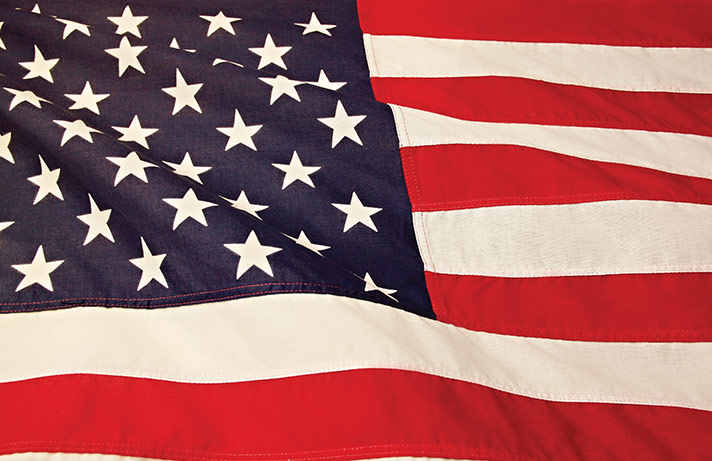A Few Minutes with the Mayor – October 2019
A prominent citizen visited my office recently to complain about a statement I made in one of my columns. The statement read, “It is the Constitution that holds our political parties in check. It stopped the Republicans from destroying President Truman. Today it is stopping the Democrats from destroying President Trump.”
This person thought it was too political since, as your Mayor, I represent all citizens regardless of their ideology. The truth is I represent even those who hold me in low regard, and I take that responsibility seriously, so I was caught by surprise since there was no intent to advance one political persuasion over another. For the record, I am not a member of either political party. Partisan party group identification too often shuts out any or all discourse while concentrating on the accumulation of more power.
Neither do I feel my views can be neatly categorized to fit pre-determined labels such as conservative or liberal. These two terms have been so altered in meaning they have lost any reliable sense of identification. Today, each seems to look at the other as a Neanderthal in contrast to themselves, as if they had discovered the true path to a life of egalitarian principals. I will admit they seem comfortable in their sublime view of themselves. As for me, I’m a 20th century man, so of course I’m hopelessly out of tune in this modern era.
I admit I’m confused. Example… lots of people identify as atheists. That’s fine, but if they run for public office and take an oath to become whatever, to whom is their oath made? I make no judgment here; I only ask the question.
Then there is the Pledge of Allegiance. If one doesn’t want to say the Pledge they have a right to remain silent. It’s not dissimilar to taking communion at a church service. If you’re not a Christian you have no reason to receive the sacrament. Still, the question arises for those in public office: if you cannot accept the Pledge, to whom is your allegiance when performing your duties? Again, I make no judgment here. I only ask the question.
There is also the question of our nation’s flag, another troublesome icon. I’ve never been inclined to burn a flag. It looks difficult. Maybe there is a course offered somewhere on how to burn a flag, for people have been doing it successfully since the days of Vietnam. I mention this because the other day I ran across a news item reporting on an elected congressional representative who announced to his constituents, having become ashamed of our country’s history, he would no longer salute the flag. Again, that is his right. But the question arises; shouldn’t he resign from Congress where they fly the flag all the time?
Then there is the question of what flag would he like to substitute. Everyone has a flag. It’s still a proven form of identification. It’s like a political ID card, especially if you’re a demonstrator similar to those we see in Portland. They have a flag they wave which helps confirm who they are when actively going about smashing windows or harassing motorists. Even though they wear masks, we know them by their flag.
You may have overlooked it, but Jacksonville has no city flag. I don’t know why this is so but there are other forms of identification. Take color as an example. Last year drivers in Paris decided to launch a protest against higher gasoline prices while wearing yellow vests. A few years back, at earlier protests in Hong Kong, the color of choice was also yellow. The streets were filled with people holding up yellow umbrellas.
It appears that yellow is a good color for events such as these but is it appropriate for a flag? Red is too combative or warlike. So is purple. People will tell you they see purple when they get angry. Blue belongs to Disney, and white means “I surrender.” Brown or black recall images of storm troopers. Perhaps that’s why the Jacksonville pioneers didn’t create a flag. Perhaps they couldn’t agree on choice of color.

 Paul Becker is the current Mayor of Historic Jacksonville, Oregon.
Paul Becker is the current Mayor of Historic Jacksonville, Oregon.
Dear Mayor Becker,
I am glad that the “prominent citizen” called you on your statement “[The Constitution today] is stopping the Democrats from destroying President Trump.” How could this not be construed as having “no intent to advance one political persuasion over another.”? You say you are not a member of “either political party” because “group identification too often shuts out any or all discourse while concentrating on the accumulation of more power.” Yet in your statement about the Democrats you support the man who has done more than any president to shut out rational discourse – even among his closest advisors – and denigrate our intelligence agencies, our institutions, the free press…anyone who disagrees or challenges the sanctity of his unhinged twitter posts and foreign policy bombs.
Your column also takes stabs at atheists and flag burners. A few months back in a previous issue you made what I consider to be a paranoid statement about gun control, as if any controls on open carry or registration means prying guns out of our hands. The majority of the country disagrees with you on this and believes some controls, on automatic weapons for example, will reduce death tolls and make police officers’ jobs easier.
I suspect that the “prominent citizen” is with me in hoping in the future your column will give insight and information on local issues rather than lobbing polarizing statements that do nothing to bring the citizens of Jacksonville together.
Sincerely,
Dale Engle
Morton Way, Jacksonville